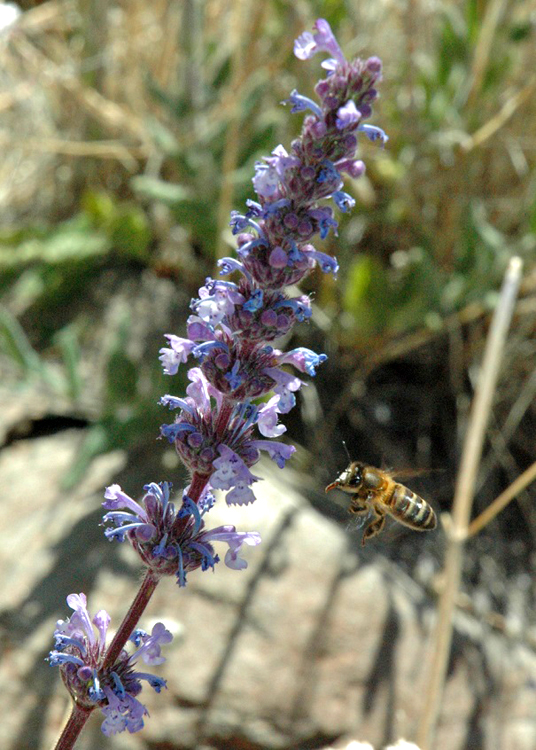The honeybee Apis mellifera is the primary managed species worldwide for both crop pollination and honey production. Owing to beekeeping activity, its high relative abundance potentially affects the structure and functioning of pollination networks in natural ecosystems. Given that evidences about beekeeping impacts are restricted to observational studies of specific species and theoretical simulations, experimental data are still lacking to test for their larger-scale impacts on biodiversity. Here a three-year field experiment in a natural ecosystem was used to compare the effects of pre- and post-establishment stages of beehives on the pollination network structure and plant reproductive success. Results show that beekeeping reduces the diversity of wild pollinators and interaction links in the pollination networks. It disrupts their hierarchical structural organization causing the loss of interactions by generalist species, and also impairs pollination services by wild pollinators through reducing the reproductive success of those plant species highly visited by honeybees. High-density beekeeping in natural areas appears to have lasting, more serious negative impacts on biodiversity than was previously assumed. informacion[at]ebd.csic.es: Valido et al (2019) Honeybees disrupt the structure and functionality of plant-pollinator networks. Sci Rep https://doi.org/10.1038/s41598-019-41271-5DO
https://www.nature.com/articles/s41598-019-41271-5

 Las altas temperaturas están provocando que las lagunas y las marismas de Doñana pierdan agua rápidamente
Las altas temperaturas están provocando que las lagunas y las marismas de Doñana pierdan agua rápidamente




